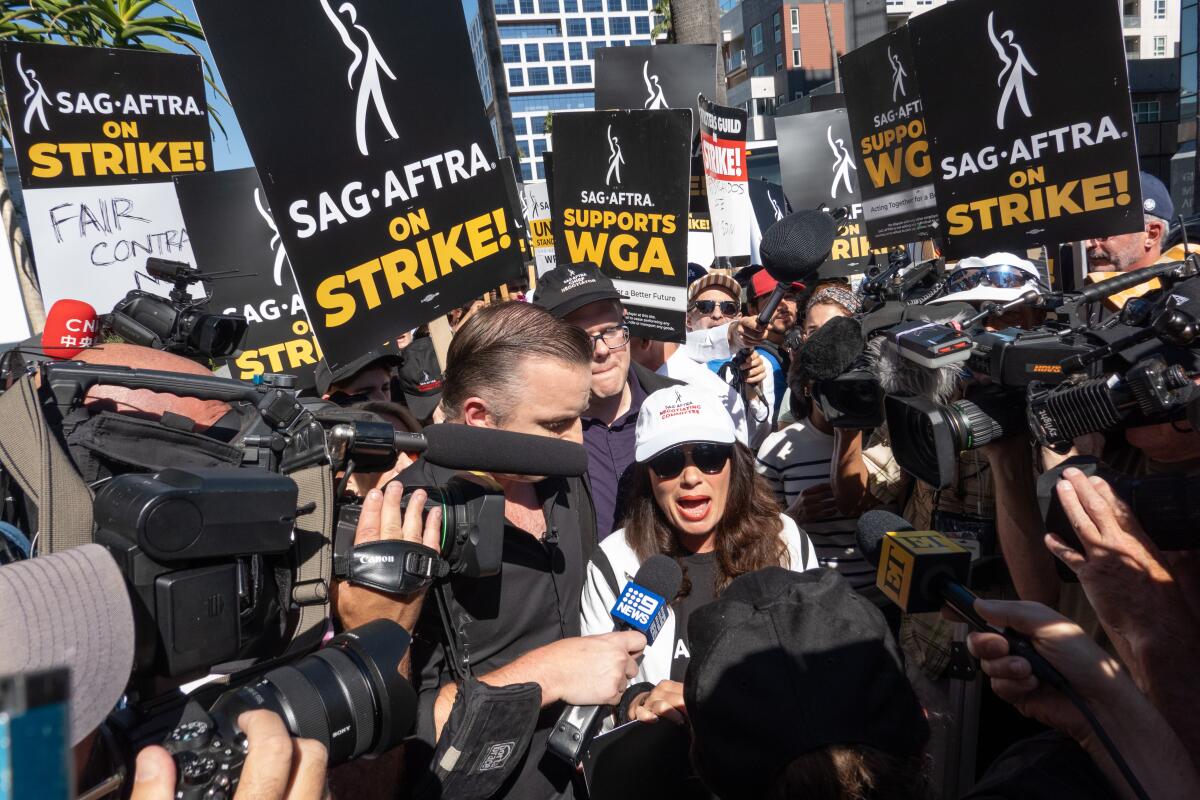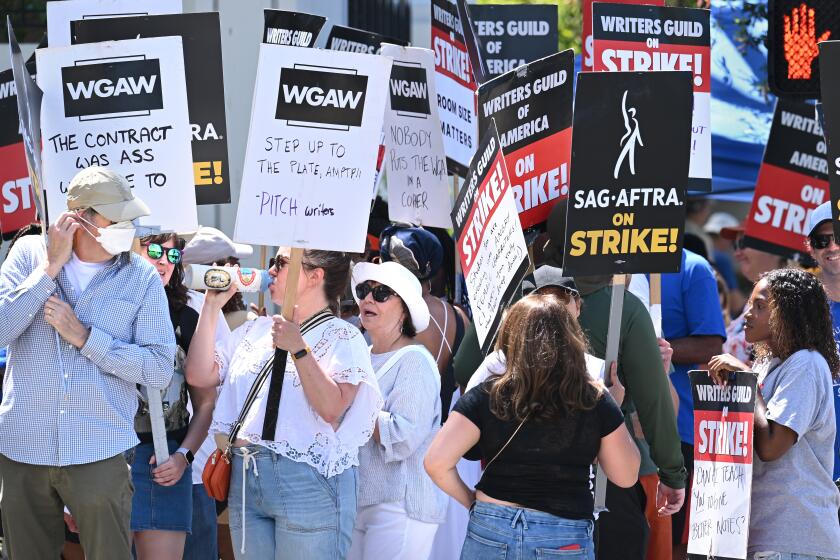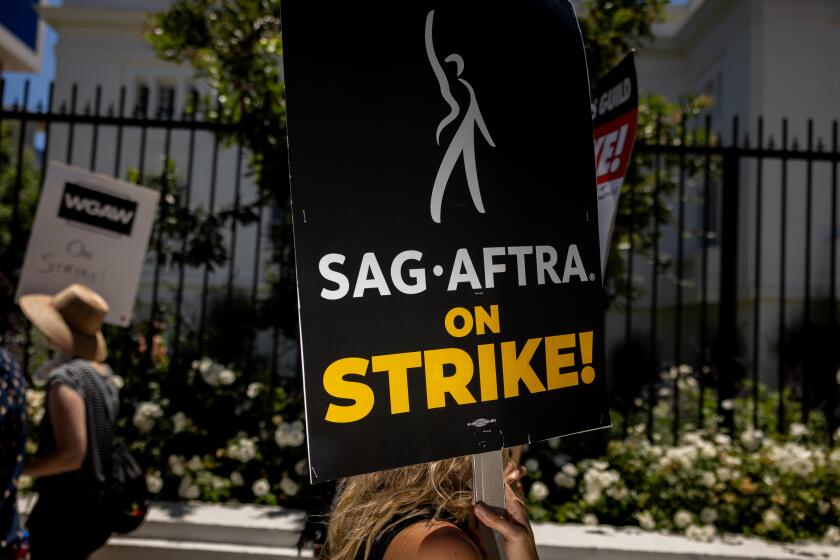SAG-AFTRA moves to rein in controversial side deals with independent producers

- Share via
SAG-AFTRA is taking steps to restrict its approval of side agreements with independent producers after the union faced criticism that such deals undermine the efforts of Hollywood’s dual strikes.
The 160,000-member performers union on Monday said it would now exclude independent productions in the U.S. that have contracts with the Writers Guild of America from receiving interim agreements that allow actors to keep working during a work stoppage.
About 15% to 20% projects approved for interim agreements were covered by WGA contracts, said Duncan Crabtree-Ireland, SAG-AFTRA’s chief negotiator, in a Tuesday question-and-answer session with reporters.
Both unions are in the midst of historic strikes against the major studios. Screenwriters have been on picket lines since May 2; actors joined them last month.
“We have been advised by the WGA that this modification will assist them in executing their strike strategy, and we believe it does not undermine the utility and effectiveness of ours,” SAG-AFTRA’s TV/Theatrical/Streaming negotiating committee said in a note to its members. “It is a win-win change.”
SAG-AFTRA approved side agreements allowing more than 100 independent film projects and series to move forward amid the strike, but the deals have spurred debate.
SAG-AFTRA has approved more than 200 interim agreements for movies and series — some involving A-list stars including Anne Hathaway, Kevin Costner, Mel Gibson, Glenn Close and Dakota Fanning — allowing productions to continue despite the ongoing strikes that have crippled Hollywood.
But the volume and rapid pace of such approvals has stirred debate across Hollywood.
Some striking actors and writers have expressed concerns about the interim agreements, questioning why so many high-profile members are continuing to work while they are walking picket lines. Critics also argued that many of these projects will ultimately be distributed by members of the Alliance of Motion Picture and Television Producers.
SAG-AFTRA leaders have defended the deals, arguing that they allow actors and other crew members to keep working, while supporting independent productions that have agreed to the union’s deal points. Those include providing actors with an 11% boost in minimum pay and sharing streaming revenue with performers, among other concessions the AMPTP had rejected.
SAG-AFTRA has approved a deal from the studios to end its historic strike. The actors were on strike for more than 100 days.
“These agreements are also designed to undermine the production slates and timing of the AMPTP companies and ensure that they come back to the table,” wrote SAG-AFTRA President Fran Drescher and Crabtree-Ireland, the union’s national executive director, in a note to SAG-AFTRA members last week.
SAG-AFTRA and the AMPTP remain at odds over issues including streaming residuals and regulating the use of artificial intelligence technology.
Crabtree-Ireland said at Tuesday’s virtual Q&A that SAG-AFTRA remains eager to get back to the table with AMPTP but has not been contacted by the studios alliance yet. Representatives of the WGA and the AMPTP were scheduled to resume bargaining this week.
“We’re happy that they are back at the table with the writers guild this week,” Crabtree-Ireland said. “Perhaps that is a sign for cautious optimism about the future of these agreements, and hopefully an end to both strikes in the near future.”
More to Read
Inside the business of entertainment
The Wide Shot brings you news, analysis and insights on everything from streaming wars to production — and what it all means for the future.
You may occasionally receive promotional content from the Los Angeles Times.













